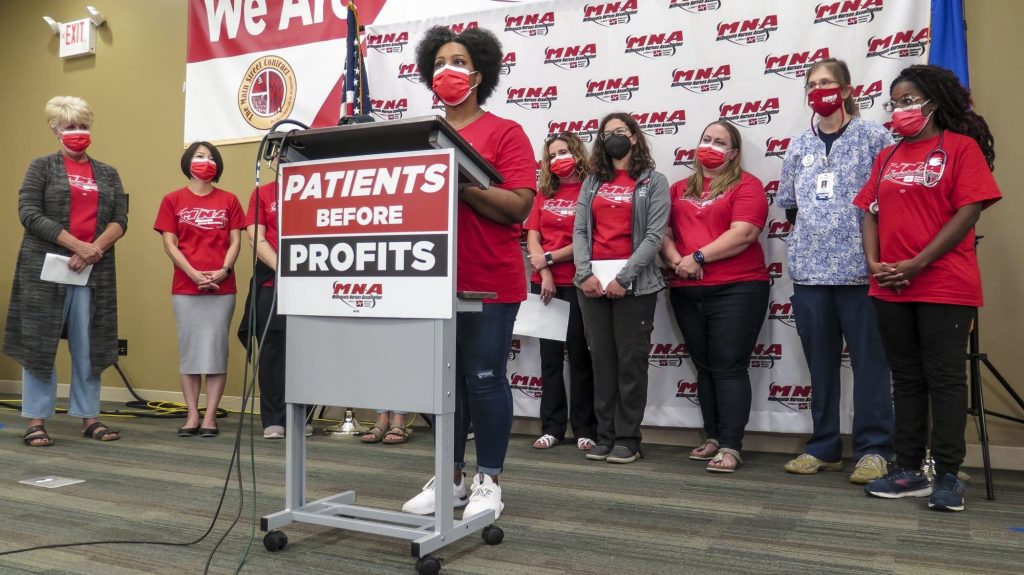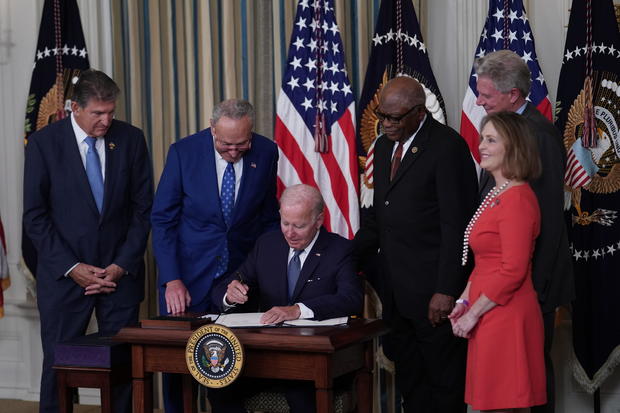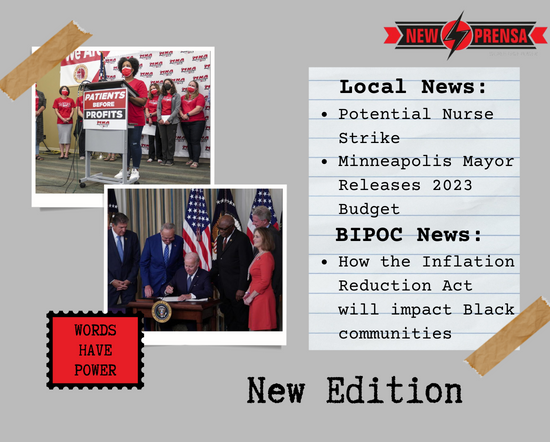This week’s edition covers stories
from August 11th to August 17th, 2022.
Today’s issue is 835 words, a 6.4-minute read.
We’re talking about the potential nurse strike in Minnesota and a proposed budget for Minneapolis, released by Mayor Jacob Frey. In BIPOC News, we’re discussing how the Inflation Reduction Act will impact Black communities.
Local News:

Fifteen thousand Minnesota nurses voted “overwhelmingly” to authorize a strike, aiming for hospital executives to put patients before profits. This vote means that union leaders can now call a strike at any time but must give workplaces a 10-day notice of work stoppage. The reason for the strike is that many nurses are overworked and underpaid. Hospitals need to do a better job retaining their staff and providing better pay and working conditions. Not only does this make work safer and more manageable for the staff, but it also ensures better patient care.
“Corporate healthcare policies in our hospitals have left nurses understaffed and overworked, while patients are overcharged, local hospitals and services are closed, and executives take home million-dollar paychecks,” – Chris Rubesch, RN at Essentia in Duluth and First Vice President of the Minnesota Nurses Association.
Minneapolis Mayor Jacob Frey released his proposal for the 2023 city budget. The proposal will see several public hearings before city council members vote on the budget in December this year. The budget offers an increase in funding for affordable housing, the Behavioral Crisis Response team, and a one-time abortion fund that supports abortion access in Minneapolis. The biggest thing to note in the proposal is funding for additional law enforcement. The Minnesota Supreme Court has ordered the city to have at least 731 officers; a number Minneapolis hasn’t seen since March 2021. Frey proposes that the city comes up with the $1.66 billion budget with a property tax levy, meaning homeowners of a median-priced home would see a $167 increase on the annual property tax bill.
BIPOC News:

The Inflation Reduction Act (IRA) was signed into effect on August 16th, 2022 by president Joe Biden. The Act covers a wide range of areas where inflation has impacted Americans, specifically Black Americans. Some of the areas targeted by this act include things like: lowering prescription drug costs for Medicare beneficiaries and expanding health insurance coverage and lowering premiums, tax credits for homeowners who upgrade their appliances or install alternative energy methods like solar panels, and protecting public health by tackling pollution in port communities and low income and racially diverse communities.
The Biden administration has a designated fact sheet to describe the ways that the IRA will help Black Americans. White House staffers affirm the importance racially diverse communities had in the decision processes during the creation of this Act. However, some aspects have been criticized. The tax credits for homeowners who switch to more environmentally friendly appliances in their homes are really only helpful things for homeowners. That means that for the large populations of Black Americans who are renters, the tax credits will go to their landlords should the landlord take part in this program. Cecilia Rouse, chair of the White House Council of Economic Advisors told TheGrio news outlet that the tax credit program “does rely on the landlords taking advantage of that tax credit, but we believe that they’re generous”. This, of course, doesn’t necessarily ring true to renters in America, many whom struggled to pay rent during the pandemic, especially when the rent relief federal eviction moratorium ended in July of 2021.
Still, the IRA will bring some relief to Black Americans, especially with introducing, for example, a cap on the price of Insulin for Medicare beneficiaries or adding the Shingles vaccine to the list of free vaccines available to Americans. It’s important to be aware of what benefits you could qualify for or changes you might see under this act so you can fully take advantage of what services are available to you.
Bottom of the News:

Snoop Dogg has entered into the world of breakfast cereals with Snoop Loopz. The gluten free and multigrain cereal is a joint venture with American rapper Percy “Master P” Miller. The food company created by the two men, Broadus Foods, was made to honor the legacy of Snoop Dogg’s mother who passed away last year. Pick up a box of Snoop Loopz in your grocery store and let us know what you think!
About NewPrensa:

We’re communications specialists at NewPublica by day and celebrating Maria’s birthday by night! (Happy birthday, Maria!!)
Do you enjoy reading NewPrensa?
Forward it to someone you think may enjoy it too!
Got suggestions, feedback, or a good scoop?
Send it to us at newprensa@newpublica.com.
If someone sent this newsletter your way, feel free to subscribe to get local, BIPOC news delivered to your inbox every Thursday morning.





